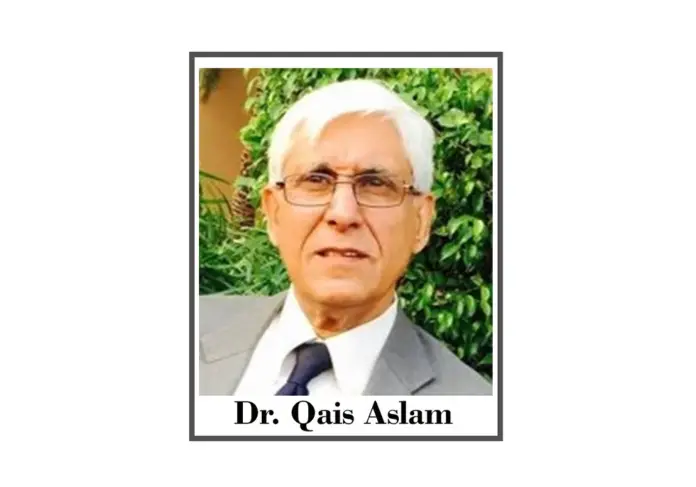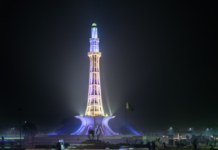UN SDG Goal 12 is all about our production and consumption patterns and how they impact the environment through pollution. SDG Goal 12 states that “Worldwide consumption and production — a driving force of the global economy — rest on the use of the natural environment and resources in a way that continues to have destructive impacts on the planet”. “According to the latest projections, the global population could grow to around 8.5 billion in 2030, and 9.7 billion in 2050. The equivalent of almost three planets could be required to provide the natural resources needed to sustain current lifestyles”.
The UN Department of Social Sciences document stressed that, “our unsustainable consumption and production patterns are the root cause of the triple planetary crisis, which includes (a), climate change, (b), biodiversity loss, and (c), pollution in the environment”. The document further stressed that, “Our reliance on natural resources since the year 2000 has increased by 65%. Too much food is being wasted or lost in every country every day. Worldwide 13.3% of the food around US $ 1 trillion is wasted after harvesting and before reaching the retail market. 17% of world food is wasted at the consumer level.” The document also states that almost 23% of world electronic waste is not being safely managed”. (Source: https://sdgs.un.org/goals/goal12) In Pakistan 40% of food is wasted in transport and at the retail market (Mandi), also, wastages at consumer levels, especially by the richer strata of the society are enormous and the pattern can be seen on food streets, marriage halls and other places where food is served to the rich and privileged and is flagrantly wasted and thrown on the street around.
Humans are both producers of goods and services and on the whole, are consumers of those goods and services that they take directly from the environment or change their form through production and then consume. These consumption and production patterns around the world as well as in Pakistan create four related problems for the environment. First, humans because of rapid productive industry and new techniques in agriculture as well as a rising population that overuses municipal usage of water and sewer systems overuse natural resources at a pace that is not being replenished in our lifetime. Second, this overuse of natural resources both for consumption as well as production creates wastages’ that are unprecedented in human history, especially wastages of materials that are not bio-degradable and therefore pollute our natural as well as our social environment for long time to come, littering the streets, homes, water channels and even oceans, threatening the life of humans, animals, birds and even marine life. Third, this rapid productive industry and transportation of mass materials and people around the world is consuming energy that is conducive to human life like Oxygen at a fast rate, especially when more fossil fuels and non-renewable energy sources are being used to produce electricity, power motorized vehicles, cooking, and heat up homes and at the same time, Fourth, converting this good for life energy into bad for life energy like generation of CO2 and other pollutive gases etc.
Pakistan SDG Report 2022 on SDG Goal 12 indicates that the country’s solid waste in 2017 was 0.4 KG per capita, per day. The country’s electronic waste in 2019 was 2.1 Kg per capita. Production-based SO2 emissions in 2018 were 4.9 Kg per capita. SO2 emissions embodied in imports in 2018 were 0.2 Kg per capita. Production-based Nitrogen emissions in 2015 were 11.2 Kg per capita. Nitrogen emissions embodied in imports in 2015 were 0.1 Kg per capita. The export of plastic waste in 2021 was 0.1 Kg per capita.
It is pertinent to note here that 80% of the people of Pakistan (Almost 184 million live below the poverty line of US $ 4 (Rs. 1000) a day. Almost half of the city’s population lives in slums. 12.3% of the total households live in congested conditions, with over two-thirds of these in rural areas. According to Pakistan SDG Report 2021, 1.8% of the population in Pakistan was facing severe food insecurity. Therefore, the onus of unsustainable consumption patterns in Pakistan falls on the middle-income groups and the rich families in the country which total almost 20% of the population. Misuse of water, electricity and other resources is prevalent in the country. Mismanagement of sewer facilities also pollutes the streets of cities and towns, while there are no sewer facilities in the rural areas and slums of Pakistan. Modern marketing techniques by multinationals and brands have forced the average consumer to go toward ‘compulsive buying’ thus creating a much increase in urban consumption of consumer goods and therefore wastage that is creating unsustainable living conditions in the country. Overuse of single-use plastics, fossil fuels as inputs in industry and transport sectors, cutting down trees for timber and fuel for household cooking purposes and the use of many materials like Tetra packs for juices and milk products that have very little facilities for recycling and reuse has created havoc at increasing pollution levels in Pakistan. Nuclear waste that creates harmful radiation, solid waste that piles up in landfills like used Tyres and other such products, agricultural waste that is burnt and creates fogs around cities, plastic waste that chocks sewers and hospital waste that create disease are prevalent in the country. All these different kind of pollution needs different types of technology and know-how to mitigate their adverse effects.
On one side the country is in serious need to manage food resources, energy resources and water sensibly and sustainably, on the other side the governments at different tiers need to manage solid waste etc. In such a way that our cities and villages become sustainable and livable for our children and grandchildren. There is an extra responsibility of our educated and knowledgeable people and classes to mitigate the effects of pollution at personal and collective levels in our homes and at our streets and our workplaces. We need to become whistleblowers when the wastage of resources and pollution of our streets are concerned. Government machinery, the private sector, Social Sector (NGOs) and the population at large have a role to play in making our production and consumption patterns sustainable and making the future of Pakistan livable for all. The industry should be forced to use green technologies and sustainable processes through reusing resources, zero wastage policies and minimizing their pollution levels through strict adherence to rules, and regulations and by using modern techniques of production. Our consumption patterns should also become sustainable and only needful goods should be bought and consumed, that have a less pollutive capacity and can be easily recycled. The use of non-degradable materials should be shunned and the principle of reducing, reusing, recycling and therefore reducing wastage should be implemented in our everyday consumption patterns. Only with individual and collective effort can Pakistan achieve SDG Goal 12 in the year 2030 and beyond. It should be remembered that the country has already lost forest cover, decimated our gas reserves, polluted our water and air, are importing food, energy and other materials that could have been sustainably produced at home because of mismanagement, callousness and overuse. The impact of overproduction, overuse and overconsumption would be felt mainly by the poor whose
capacity to live is reduced in multiple ways, but also would be felt by the rich who would also find the streets, air, land, water and other resources diminished and polluted in the near future. The impact would be felt by the industry where the supply chain would be disrupted and would become more expensive. The impact would also be felt by the government when the taxpayer’s capacity to pay taxes would decline due to a decrease in both income and therefore consumption levels and investment levels and therefore production due to the reduction of usable materials and cost of energy resources. We all need to think now if we want to have a pleasant future and sustainable long life for our families and children.







